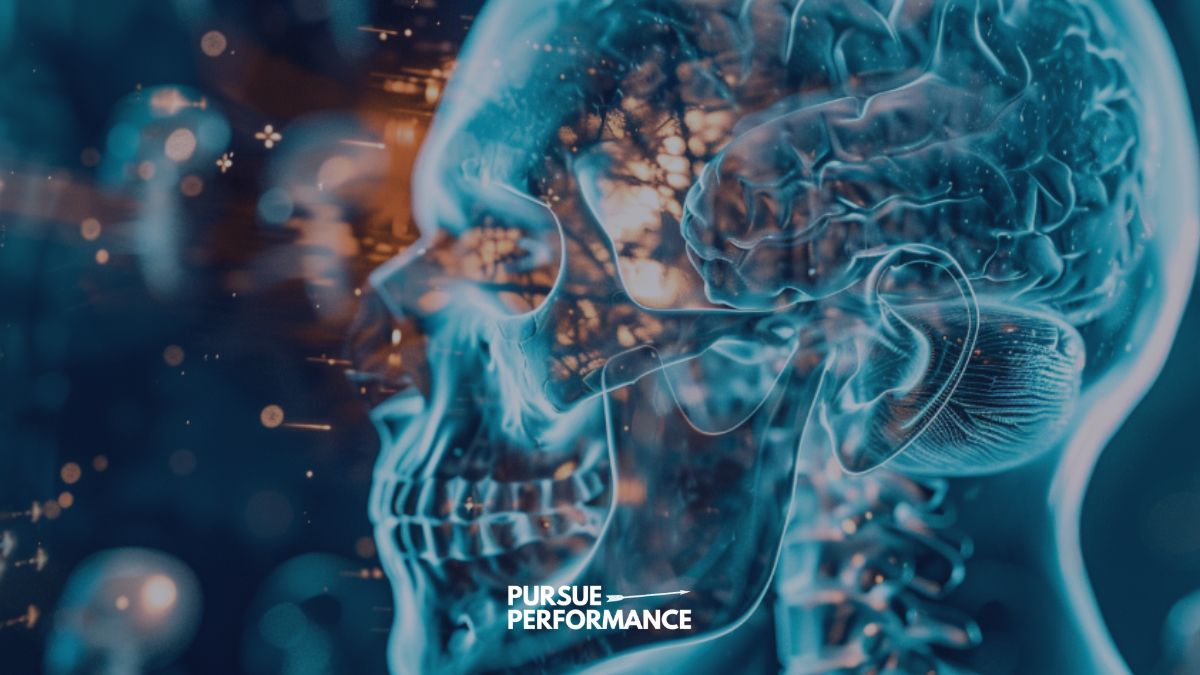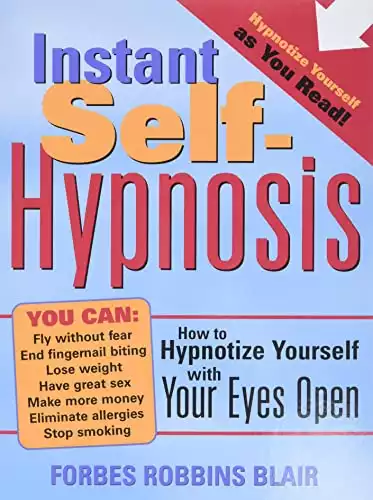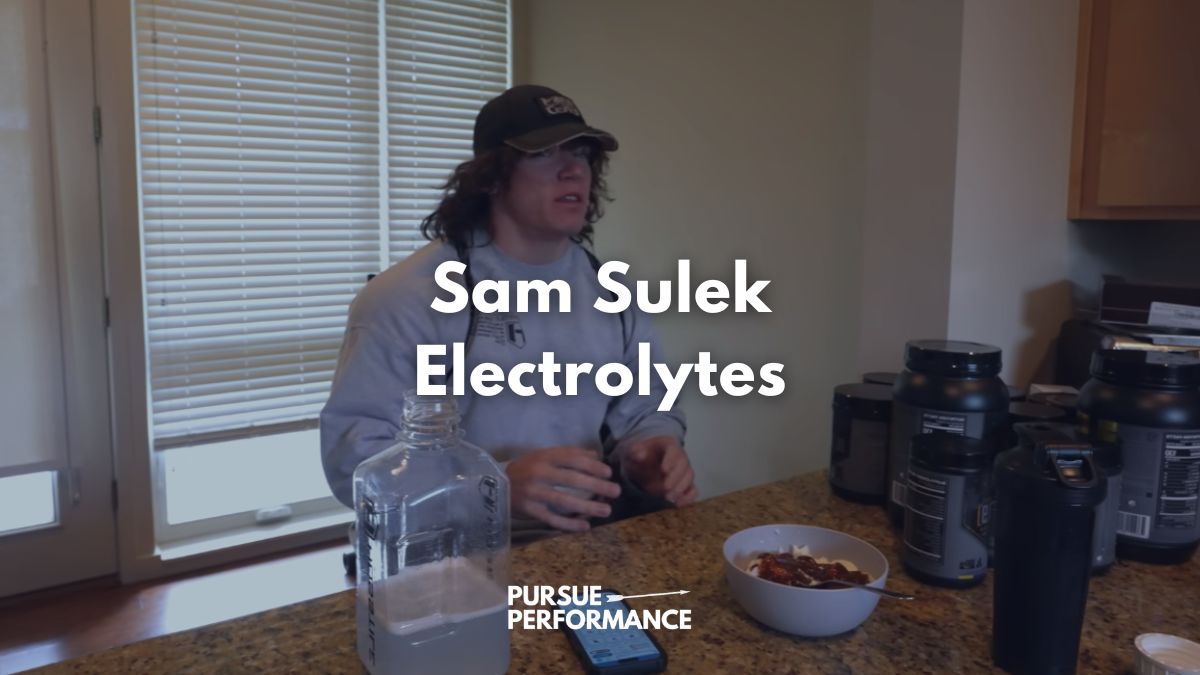Hypnosis has long been misunderstood and misrepresented as some form of mind control or magic.
However, neuroscientist Andrew Huberman demystifies hypnosis and explains how it can be a powerful tool for managing stress, enhancing focus, and even reshaping the brain.
In this post, we’ll provide an overview of Huberman’s insights into the true nature of hypnosis, how it impacts the brain, and practical recommendations on how to use self-hypnosis to improve sleep, productivity, and mental health.
Let’s get started!
Top Pick
Recommended reading: Instant Self-Hypnosis
Andrew Huberman Explains Hypnosis
Hypnosis, as explained by Psychiatrist David Spiegel, is a state of highly focused attention.
It’s like looking through the telephoto lens of a camera in consciousness.
What you see, you see with great detail but devoid of context.
It’s like getting so caught up in a good movie that you forget you’re watching a movie and enter the imagined world.
You’re part of the movie, not part of the audience.
You’re experiencing it, not evaluating it.
Hypnosis can also be a self-altering experience, where your physical reactions are part of the event you’re engaged with.
In terms of learning, hypnosis brings together the alert-focused wakeful state where you activate the knowledge and the deep rest where the actual reconfiguration of the neurons and synapses takes place.
It’s a unique state that maximizes learning and deep rest in the same compartment of time.
However, it’s more about modulating the circuits that underlie state as opposed to specific information.
Hypnosis can be used to guide your brain toward a particular outcome or change.
It increases areas of the brain responsible for deep relaxation, focus, and self-awareness simultaneously, which is very unusual compared to other states.
This can increase plasticity, the brain’s ability to change in response to experience, essentially opening up pathways that allow you to change your brain in the ways that you want.
Related: Somatic Breathwork (Explained)
How Does Hypnosis Work?
Hypnosis works by guiding your brain towards a particular outcome or change.
It involves specific areas of our brain that are involved in executive function, which is associated with our ability to focus, as well as the “default mode network,” which is how your brain idles.
Hypnosis has been shown to activate a brain area called the “insula,” which enhances our sense of internal state, or interoception.
This is unusual compared to other states, as it increases areas of the brain responsible for deep relaxation, focus, and self-awareness simultaneously.
In the process of hypnosis, there’s an induction phase, a deep hypnosis phase, and an exit phase.
During the induction, activity in the dorsal anterior cingulate cortex (DAC), a part of the brain’s salience network, is turned down.
This makes it less likely that you’ll be distracted and pulled out of whatever you’re in.
Related: Andrew Huberman Acupuncture Recommendations & Science
Huberman Hypnotizability Test

Hypnotizability is surprisingly predictable.
A simple test, involving looking up at the ceiling and then closing your eyes, can reveal much.
If your eyelids flutter, it indicates a flexible autonomic nervous system, making you more susceptible to hypnosis.
While personality doesn’t directly dictate hypnotizability, some people naturally resist hypnosis.
This resistance could stem from a reluctance to relinquish control or an inherent trait of their nervous system.
Related: Andrew Huberman Hiccups Cure: Science-Backed Solution
Huberman Hypnosis Protocol
Self-hypnosis is a skill that can be learned and practiced.
Here are some steps Professor Huberman has used and recommends.
- Relaxation: Start by relaxing your body. This can be done through long exhale breathing and progressive body relaxation. Relaxing your face, especially your jaw, can also help.
- Use of Tools: Huberman uses the Reverie app, which offers specific hypnosis for various needs, including falling back asleep. The app guides you through the process of self-hypnosis. It’s important to note that this is not stage hypnosis, but a method of self-directed relaxation.
- Practice: Practice is key. For instance, with the Reverie app, you practice the falling back asleep hypnosis during the daytime and then use it in the middle of the night if needed.
Hypnosis is a skill that you can enhance with practice.
It’s one of the few approved medical treatments for various psychological and psychiatric conditions.
Huberman Hypnosis Recommendations
Hypnosis can be a powerful tool for managing stress, improving sleep, and enhancing focus.
Managing Stress and Sleep with Hypnosis
Hypnosis can help dissociate physical reactions from psychological stress, allowing you to control your bodily response to stressors.
This can be particularly useful for managing stress and improving sleep, as discussed in the Huberman Lab episode with Dr. David Spiegel.
Enhancing Productivity and Mental Health Through Hypnosis
Hypnosis can also activate specific brain areas involved in executive function, focus, and interoception.
This leads to deep relaxation and increased self-awareness
It’s particularly beneficial for enhancing productivity and mental health.
Reveri App for Hypnosis
Professor Huberman recommends using the Reveri app.
It offers science-backed hypnosis protocols for various outcomes, such as enhancing focus, reducing pain, and improving sleep.
He personally uses it daily as a form of Non-Sleep Deep Rest (NSDR) to enter a state of deep relaxation and then exit that state in a focused and deliberate way.
True Nature of Hypnosis
It’s important to note that the hypnosis I’m referring to is not stage hypnosis.
Hypnosis is about teaching your brain how to access focused, relaxed, interoceptive states, which can increase brain plasticity and allow you to change your brain in the ways you want.
Huberman stresses that hypnosis is a tool that can be used to guide your brain toward a particular outcome or change.
It’s not a magic bullet, but when used correctly, it can be a powerful aid in managing stress, improving sleep, and enhancing focus.








